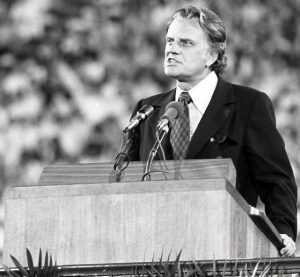This is mark Joseph “young” blog entry #102, on the subject of Music and the Evangelist Ministry.
This continues our miniseries on what it is to be “called” to “music ministry”. Our first installment was #95: Music Ministry Disconnect, making the point that most Christians are not what we call “ministers” and most musicians are “entertainers”. In #97: Ministry Calling we examined how to know whether you are “called” to be a “minister”, based largely on who you are, what motivates you and how you relate to others with needs. Following this we identified five specific “ministries” in #98: What is a Minister?, and began looking at individual ministries with #99: Music Ministry of an Apostle followed by #101: Prophetic Music Ministry. That brings us to the third ministry on the list, the evangelist.
In one sense we significantly covered the evangelist when we examined the ministry of the apostle, as we needed to distinguish the two ministries. We looked at Philip the Evangelist, the only person in the New Testament to be identified specifically as an evangelist, and recognized that wherever he went he preached or explained the gospel message and brought people to faith in Christ (but did not, we noted, found any churches). Yet we also commented that in the nineteen seventies nearly all Christian music was connected to evangelism, to the degree that it was generally assumed that if you were a Christian and a musician you were an evangelist. That is not so, as this series has already observed, but it is at least interesting that it was then thought to be so.

It is interesting because that was a time of revival–we called it “The Jesus Movement”, and the many converts became known as “Jesus People”. Concerts grew into festivals–the first Woodstock-like Christian gatherings occurred at that time and are still held today largely because they have become a tradition (they did not exist before that). The ministry of the evangelist is closely tied to revivals. George Whitefield, John Wesley, and Jonathan Edwards are all remembered as evangelists in the First Great Awakening; Charles Finney and Lyman Beecher are leading names from the Second Great Awakening; D. L. Moody is connected to a time of revival some call the Third Great Awakening. The Jesus Movement was marked by a huge number of evangelists preaching on streets, in coffeehouses, at outdoor concerts, and elsewhere.
We do not have that today.
Some would say that we do not have revival at present because we do not have enough evangelists, or enough people doing evangelism. There are groups trying to train believers to be evangelists. This is wonderful, of course, as everyone needs to be able to share the faith with others; but you can no more be taught to be an evangelist than you can be taught to be female. As we noted, Christ gives to the church people who are the gifts, the ministers, among whom are evangelists, evangelists since before they were born given as gifts to the church. Thus arguably it is not that we do not have revival because of a lack of evangelists, but that we do not have evangelists because this is not a time of revival.
That does not mean there are no evangelists. God always has people calling others to salvation, some of whom are specially given for that purpose. However, revivals are special times–Dr. J. Edwin Orr has identified them as “God’s periods of recruitment”, and a significant number of those who are in church ministry today accepted Christ in that revival. Billy Graham, Bill Bright, Dick Halverson, and a host of others who were leaders in the church then became believers in the previous revival.
It also does not mean that there are not evangelists growing up among us right now. After all, those of us who were in our teens and twenties in the seventies are in our fifties and sixties now, and God is going to need a new crop of leaders and believers. It will be in His timing, and He has been known to skip a generation or two, but He will not allow faith to vanish from the world. Revival will come, and the number of evangelists will explode anew as the message is brought to the lost once again.
To the evangelist, Jesus is the answer to every problem. It is a simple gospel, a simple message, that whatever the problem is, Jesus is the answer–absolutely true, but often overly simplistic when dealing with human problems. That is why there are other ministries besides the evangelist, because believers need the nurturing of pastors and teachers to help unravel how Jesus is the answer to all the problems. The focus for the evangelist, though, is always on Jesus, pointing people to Him as the solution.
The Booths used music in their evangelism, having brass bands and singers attract crowds on the streets by singing revival hymns, creating a “Salvation Army”. Music was used much that way in the Jesus Movement, as something of a billboard to attract the attention of people who needed to hear the message–and the message was preached, but it was also sung. In the preface to his book Inventing Champagne: The Worlds of Lerner and Loewe, music historian Gene Lees comments that music is an incredibly effective form of advertising because people voluntarily memorize the words and repeat them. Getting the gospel message into music that people will want to hear and sing is a significant part of the evangelist’s music ministry–and many of the musicians and bands of the early Jesus Movement did that extremely well. The modern musical evangelist has a solid collection of examples from that era, some of whom continued ministering for decades thereafter. Learn from them.
Which brings us next to the pastor.
Next in the series: Music Ministry of the Pastor
One thought on “#102: Music and the Evangelist Ministry”